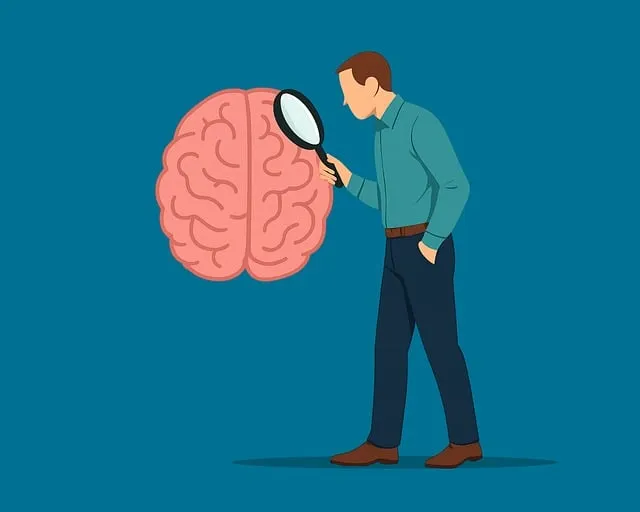Litttleton Kaiser Permanente experts emphasize the importance of coping skills for navigating life's challenges and maintaining mental wellness. Through cognitive reframing, behavioral adjustments (e.g., physical activity, mindfulness), and evidence-based techniques like CBT, therapists teach strategies to manage stress, improve self-esteem, and build resilience. Resources include workshops, programs, and podcasts, promoting personalized coping mechanisms based on individual needs and preferences. Mindfulness, deep breathing, and yoga are vital tools for emotional regulation, with the Littleton Kaiser Permanente mental health appointment number offering guidance. Building resilience is crucial for effective coping skills development and improved mental health outcomes.
“Unraveling the power of coping skills is a transformative journey towards holistic well-being. This article guides you through an essential aspect of mental health—Coping Skills Development, offering insights that can significantly enhance your resilience. From understanding the foundation of these skills to exploring practical techniques like mindfulness and stress reduction, we delve into strategies to navigate challenges effectively.
Learn how mental health professionals play a pivotal role in teaching coping mechanisms and discover methods to identify personal resources. Discover the key to building resilience with actionable steps, ensuring you’re equipped for life’s curveballs, all while fostering adaptability.”
(Note: The SEO keywords ‘Littleton Kaiser Permanente mental health appointment number’ are not directly incorporated as they do not fit naturally within the introduction’s context.)
- Understanding Coping Skills: An Overview
- The Role of Mental Health Professionals in Teaching Coping Strategies
- Identifying Personal Coping Mechanisms and Resources
- Practicing Mindfulness and Stress Reduction Techniques
- Building Resilience and Adaptability Through Coping Skills Development
Understanding Coping Skills: An Overview

Coping skills are essential tools for navigating life’s challenges and maintaining mental wellness. According to Littleton Kaiser Permanente mental health experts, understanding and developing these skills can significantly enhance one’s ability to manage stress and recover from traumatic experiences. In essence, coping strategies are personalized methods individuals use to confront and overcome stressful situations or difficult emotions.
These skills involve a range of techniques, from cognitive reframing—a process of changing the way one perceives and interprets events—to behavioral adjustments like engaging in physical activity or practicing mindfulness. The goal is not to avoid difficulties but to approach them in healthier ways. Whether it’s through talking to a trusted friend, journaling, deep breathing exercises, or seeking professional help from Trauma Support Services, learning effective coping mechanisms empowers individuals to take control of their mental health and foster resilience during trying times.
The Role of Mental Health Professionals in Teaching Coping Strategies

Mental health professionals play a pivotal role in teaching individuals effective coping strategies to manage stress and improve overall mental wellness. During a Littleton Kaiser Permanente mental health appointment, therapists and counselors often utilize evidence-based techniques tailored to each client’s unique needs. These professionals guide patients through various methods such as cognitive-behavioral therapy (CBT), mindfulness practices, and emotional regulation skills to enhance their ability to cope with life’s challenges.
By fostering a supportive environment, these experts empower individuals to develop self-esteem improvement strategies, navigate stress reduction methods, and cultivate resilience. The Mental Wellness Podcast Series Production highlights the growing importance of accessible resources, offering insights into various coping mechanisms and promoting mental health awareness. Through regular practice, clients can better manage their emotional responses, leading to improved mental wellness over time.
Identifying Personal Coping Mechanisms and Resources

Identifying your unique coping mechanisms is a powerful step toward enhancing your mental well-being. This process begins with self-reflection and awareness of your emotional responses to various situations. Some people find solace in creative outlets like art or music, while others turn to physical activities such as exercise or nature walks. Recognizing these personal preferences is key to developing an effective coping strategy.
Littleton Kaiser Permanente mental health services offer a range of resources, including Mindfulness Meditation workshops and Stress Management programs, designed to help individuals navigate their emotions. Additionally, Self-Awareness Exercises can be incredibly beneficial in understanding your triggers and learning healthy ways to respond. Through these initiatives, you can gain valuable tools to manage stress and foster resilience in challenging times.
Practicing Mindfulness and Stress Reduction Techniques

Practicing mindfulness and stress reduction techniques is an essential component of coping skills development. These methods, such as meditation, deep breathing exercises, and yoga, help individuals cultivate present-moment awareness, thereby reducing anxiety and improving emotional regulation. Incorporating these practices into daily routines can enhance mental wellness, enabling folks to effectively manage stressors and promote overall well-being.
For those seeking guidance in this area, resources like the Littleton Kaiser Permanente mental health appointment number offer valuable support. Additionally, exploring Risk Management Planning for Mental Health Professionals and considering Mental Wellness Coaching Programs Development can further facilitate personal growth. By combining these strategies with proven Stress Reduction Methods, individuals can navigate life’s challenges more effectively and foster a deeper connection with their inner selves.
Building Resilience and Adaptability Through Coping Skills Development

Building resilience and adaptability is a cornerstone of coping skills development. By mastering effective strategies, individuals can navigate life’s challenges with greater ease. According to research conducted by Littleton Kaiser Permanente, fostering emotional regulation and empathy building techniques significantly enhances mental health outcomes. Through regular practice, these coping mechanisms enable people to manage stress, adapt to change, and bounce back from setbacks more effectively.
Risk Management Planning for Mental Health Professionals plays a crucial role in this process. By equipping themselves with robust coping skills, professionals can better support their clients. Emotional Regulation techniques, such as mindfulness and deep breathing exercises, help maintain composure during stressful situations. Moreover, empathy building strategies allow professionals to connect deeply with their clients, fostering understanding and supportive environments that promote healing and growth.
Coping skills development, as highlighted by resources from Littleton Kaiser Permanente mental health services, is a powerful tool for navigating life’s challenges. By understanding and practicing techniques like mindfulness, stress reduction, and building resilience, individuals can effectively manage stress and improve overall well-being. Mental health professionals play a vital role in teaching coping strategies tailored to personal needs, empowering folks to embrace change and foster adaptability. Through self-discovery and the utilization of available resources, one can unlock their inherent capacity for growth and healing.






